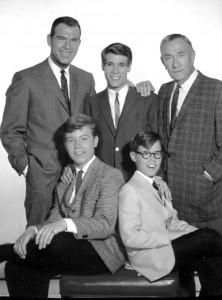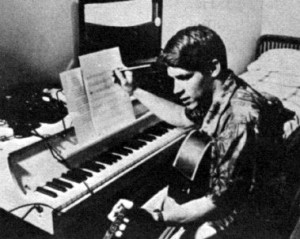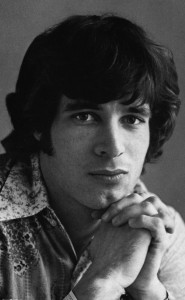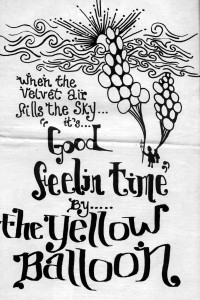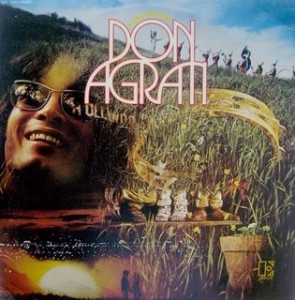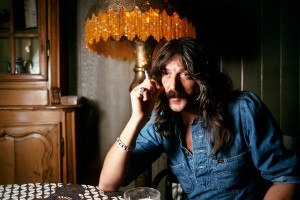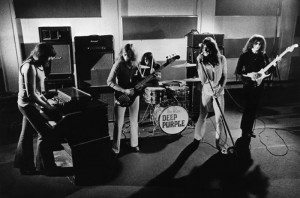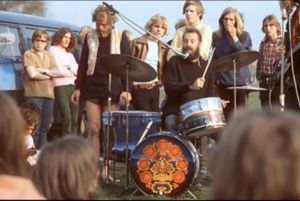-
Featured News
Marianne Faithfull 1946-2025
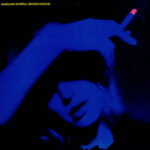 By Harvey Kubernik
Singer, songwriter, actress and author Marianne Faithfull passed away on January 30, 2025.
In 2000 I discussed Faithfull with her first record producer Andrew Loog Oldham, the 1
By Harvey Kubernik
Singer, songwriter, actress and author Marianne Faithfull passed away on January 30, 2025.
In 2000 I discussed Faithfull with her first record producer Andrew Loog Oldham, the 1 -
Featured Articles
The Beatles: Their Hollywood and Los Angeles Connection
 By Harvey Kubernik
JUST RELEASED are two new installments of the Beatles’ recorded history, revised editions of two compilation albums often seen as the definitive introduction to their work.
Or
By Harvey Kubernik
JUST RELEASED are two new installments of the Beatles’ recorded history, revised editions of two compilation albums often seen as the definitive introduction to their work.
Or -
Don Grady 1944-2012
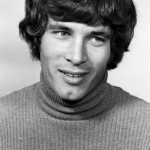
Don Grady nee Don Agrati (June 8, 1944 – June 27, 2012), known as Luke R Yoo in his helium-dosed days was the behatted, dark glasses wearing, blonde-wigged boyish brute of the Yellow Balloon (lucky devil in disguise from his teenage heartthrob day gig); as he didn’t want his celebrity to influence a taste for the sunshine-soul epics he was party to. Grady was the phantom limb of buoyant pop majesty, who laid hand in creating some of the greatest Boys-ploitation fried-era Wilson-bred pop ever waxed, pre-overdub-mania, with the group he served as drummer/vocalist for, the Yellow Balloon. He made nice to millions of homes on My Three Sons for many 365’s and blazed the same path as fellow movin’ Mouseketeer rockers Dick Dodd and Mickey Rooney Jr (there’s sumthin’ about them rockin’ meices!). But before the Balloon was blown and explown he waxed some fine solo sides as well, and in the early ‘70s cut a neglected solo LP under his given name, which carries a migh-tee Rundgren/Nilsson wallop. Any fan of pop on throughout the years owes themselves a deep delve into Grady waters, a wide-open sea of heartbreak and hope.
Below, Greg Prevost and Collin Makamson give two distinct testimonials on how the man’s hands touched them individually. A YouTube playlist follows with some highlights for the uninitiated. Dig in!
(Jeremy Cargill aka jeremy nobody, esq)
Don Grady, best remembered as ‘Robbie Douglas’ on the long-running TV sitcom My Three Sons, died at the age of 68 in his home in Thousand Oaks, California, the cause being cancer.
Grady, a multi-talented musician began his career in 1957 as a Mousketeer on Walt Disney’s Mickey Mouse Club. He related to me in 1998, “I started playing a bunch of different musical instruments when I was a kid. When I was 12, I went out and auditioned for Walt Disney because they were looking for new Mouseketeers. I played like eight different instruments for the audition.”
He soon moved on to dramatic roles, starring in countless westerns such as The Restless Gun (his first dramatic role), The Rifleman, Wichita Town, Wagon Train and Have Gun Will Travel to name a few. Grady recalled in ’98, “After The Restless Gun I started to do every western that was around in those days. This was ’58 and ’59. I was always playing the part of a kid whose father was a drunk, or whose father had left him and his mother.”
In 1960, he was called up for a major role in the then popular western Laramie, only to be ousted by Bobby Crawford, Johnny Crawford’s (of The Rifleman fame, and teen-idol/recording star) kid brother. Though it was a major disappointment, it was actually the turning point in his career. He explained, “I was so disappointed and heartbroken, but shortly after that, I got the call to do My Three Sons. I was actually a replacement because the original ‘Robbie’ didn’t work out.” He played the role for the duration of the show, from 1960 through 1972 appearing in 300 plus episodes.
On the show, like Ricky Nelson on The Adventures of Ozzie & Harriet, Don would break out with the occasional musical number, one time with his first band the Greefs. During his stay on the show he harnessed a recording contract with Capitol (cutting some sides in the process), recorded a single with the Palace Guard (“Little People”), and cut some solo sides and an album (some of it) with the Yellow Balloon on the Canterbury label.
He explained the evolution of the Yellow Balloon to me in 1998, “What happened with that was that I was the teenage chairman for National Cerebral Palsy. On the weekends I would go around to different parts of the country and I would do the telethons. During a break I’d go out and try to hear a rock group. I started keeping a list of what I thought were really exceptional musicians with the thought in mind that someday it would be great fun to put a band together having these great musicians involved. At that time I was on Canterbury Records and I had recorded “The Children of St Monica.” I was a solo act, and I think it was one of the first records on the label and it started to take off. Anyways, this guy Gary Zekley came in with this great tune called “Yellow Balloon”, which Jan & Dean had just recorded, but he really didn’t like their version and wanted to get his own version out. Ken Handler, the president of Canterbury gave him a budget and he got some studio musicians together, went into the studio for a couple of hours and put “Yellow Balloon” (the song) together. They then released it, and within a week it took off. I had just gotten back from being on the road with one of the telethons. Ken Handler said we had to get a group together [to tour behind the single]. I piped in that I’d always wanted to put a group together. He said ‘Great, go for it.’ I started calling all these guys whose names I kept. We became the Yellow Balloon.”
In the band, Don would always appear onstage and on TV performances incognito.
After My Three Sons came to a conclusion, Don continued with his musical career cutting a solo album, Homegrown, for Elektra under his real name Don Agrati in 1973. Later he composed music for shows on the Discovery Channel, numerous PBS documentaries and worked with the London Symphony Orchestra.
He is survived by his wife, Ginny; his two children, Joey and Tessa; his mother; and sister, Marilou Reichel. I interviewed Don in 1998 for Outasite and stayed in touch with him sporadically through the years. He was always a riot to talk to. A great guy. Bummed he’s gone.
-Greg Prevost
It’s Like a Fading Yellow Balloon
There’s something about Gary…that they don’t know. Gary. There’s just something about Gary.
Zekley that is. The unsung soft-psych ‘Superman.’ The Terry Reid or Shadow Morton of the sure-shot shoulda-beens. Relegated to REM footnote status now, and that’s a crime. Still; enviable fate compared to his former amarillo Balloon-mate Don Agrati, whose tombstone will likely be mouse-ears and dog-cornered 8x10s instead of the constellation/pantheon elevation that his true craft (music) so rightly warranted, both solo and helium-inflated. They’ll have plenty of time now to talk though: the two of them, about how they both were robbed and pigeonholed, watching the clouds go by.
FACT: most pop-psych music is garbage! Soft sounds for gentle people with no standards. Round Wonders that make you wonder why they were ever ‘rediscovered.’ Harpers’ Bizarre rejects repackaged as pop-sike (heavy on the ‘sike’ and spray-on sunshine tan). It is temptingly easy to get lost in this mustachioed orchestra pit—blinded by gold fillings set in fake plastic smiles—but Spanky & Our Gang are not Gary Usher and the Free Design will never be Pet Sounds, or even Andy Kim!
The Yellow Balloon—Don Agrati’s group and Zekley’s finest production vehicle—will never be Pet Sounds either, but in my estimation they maybe made it closest to those petting-zoo shores. Sadly, Don Agrati is now two months dead, so I felt it only fitting to offer him a libation, as the music of his group—which existed for less than a year—has offered and provided me both succor and a safe harbor in which my psyche has lodged for several earthly revolutions.
Like the best of the genre – the Beach Boys, Bee Gees, Left Banke, Robbs, Scratch in the Sky-era Cryan Shames, the Smoke, Don & the Goodtimes, later period Jan & Dean—the music of the Yellow Balloon sounds and feels like home: the home that is forever flash-frozen in your mind when you were young and felt the most happy and innocent, when the world was newest and unfolding—the home that now mostly exists in flashes, photographs and bi-annual get-togethers (C&E – Christmas & Easter) with aging family and old friends. Not a security blanket or a comfortable set of jeans, but a trigger mechanism set to immediate egress—far away from trouble and strife.
Brian Wilson may be the ultimate, undisputed Nolan Ryan of the ‘60s pop paradigm, commanding every inch of the melodic strike-zone, but ATTENTION MUST BE PAID to his bull-pen under-studies. And in my opinion, “How Can I Be Down,” “Baby Baby It’s You” and “Stained Glass Window” by the Yellow Balloon are every bit as inimitable as the highest-quality stuff of Inglewood’s winningest ace.
If anyone living requires proof of the exceptional nature of not only mid-to-late-‘60s pop music, but also the mid-to-late-‘60s pop climate, they need only look to acts like Don Agrati and the Yellow Balloon, who were teen idols and chart successes at the same time as they were sailing at the forefront of progressive studio craft.
And even after the Yellow Balloon settled to Earth, Don didn’t stop. His 1973 Elektra-Asylum solo effort, Homegrown, was a minor pop milestone; battered like the Hollywood sign, but soldiering on like Joey Stec, Crabby Appleton and Blue Ash against their times. And time has most certainly shown Don wiser.
Even though the Yellow Balloon, like your tree-house fort or lemonade stand, for whatever reason failed to change history, the work of Don Agrati will continue to occupy prime real-estate in my personal pop scrapbook long after My Three Sons falls off syndication or California falls into the sea. And I know you’re feeling it too.
-Collin Makamson
Jon Is Lord (1941-2012)
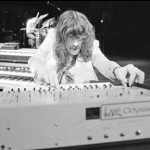
Born into a family who enjoyed makin’ a migh-tee racket, Jonathan Douglas Lord (June 9, 1941), sprung from the Leicester well that flowed forth with his saxophone player father and musical siblings. The harnesser of the hellish Hammond—who rocked the same encrusted C3 since ’73—and living godhead of Heavy Metal Thunder birthed a inimitable sound of power and nuance with the Purp, amidst some of the most beastly rock’n’roll ever put to tape, with classical flourishes serving as an underpinning but never being overplayed—separating himself from some of the more high-falutin’ exponents of progressive rock. His ever-present organ first bubbled to the surface in ace R&B/Blues/Soul combo the Artwoods, who cut many fine records and served as backing for touring Americans such as Bo Diddley and Little Walter. So impressed with their skills, Bo hisself planned to have the boys record and tour as his band in the States, but unfortunately no American band availed themselves for the exchange program which was in place at the time. I’ve long thought they were one of the more legit Brit interpretations of American R&B and apparently I’m not alone in that thought, so sez Little Walter: “I thought white boys couldn’t play the blues, but they were playing the hell out of the music. Them boys was as pure in the blues as many a negro back home, in fact there’s many a player in the States couldn’t keep up with them.”
Sadly, earlier this month we lost the Lord in a London Clinic from the combination of pulmonary embolism and his battle with pancreatic cancer. Below Doug Sheppard spins his personal tale of decades-long Purp pleasure and Lord worship. Following that Hush for a minute and partake in some of the inspired madness in the YouTube playlist selected by Doug and myself. (jeremy nobody, esq.)
When a favorite musician dies, it’s sad from a standpoint of losing their talents and the potential to ever enjoy those talents again—but it’s not like losing a family member. You listened to their music and maybe even went to their shows, but you didn’t share in any life experiences with them.
Some, however, transcend the anonymity of the average fan-musician relationship when their music ends up shaping your life in a significant way. Jon Lord, who passed away at age 71 on July 16, was such a musician to me. Had it not been for Jon Lord—or should I say Deep Purple—I probably would not even be writing this.
Deep Purple came into my life at age 10 (going on 11) in the summer of 1980, when the only music that meant anything to me was the Beatles. Just about everything I’d heard on FM radio—no need to recount how awful AOR, disco and that year’s Top 40 were—left me cold. (Tellingly, I’d discovered the Beatles via reruns of their cartoons.) Until one June day when “the riff” came on…
Hearing “Smoke on the Water” was like seeing a new Ferrari drive out of a junkyard. Played to perfection by perfectionist Ritchie Blackmore on a Stratocaster, the riff was powerful, catchy and monolithic—a collusion of metallic megawatt ecstasy and an R&B base that no AOR ever had. With Ian Paice’s hi-hat punctuating every verse and memorable chorus, Roger Glover’s bass moving like a stealthy snake, Ian Gillan’s restrained yet melodic vocals and Lord’s brilliant Hammond C3, it was flawlessness all around.
From that moment forward, I was hooked. More importantly, I knew I had to dig deeper than the Top 40 to hear good music. Deep Purple may have sold millions in the early ‘70s, but by 1980, they were out of fashion. These were the days when major labels and their lame-ass radio accomplices were hyping new music as Something You Must Own simply because it was new; old music was out because it was old. So you barely heard “old music” like Deep Purple on the radio and were considered unhip if you liked it.
Or so I was told by a few of my fifth grade classmates in suburban Pittsburgh. But I didn’t care. With Deep Purple seemingly always at the forefront of the “never heard of them” whine I’ve heard many times since, I began reading rock encyclopedias and accumulating records as best I could with my limited pre-teen funds—with my fanaticism ultimately leading to the music writing I’ve done for the past 22 years.
But Deep Purple wasn’t just at the forefront because they happened to be on the right radio at the right time. They were a great band—as great as anyone during their initial 1968-1976 run and even in some of the post-reunion days of 1984 to the present. As veterans of Johnny Kidd & the Pirates, the Outlaws, Screaming Lord Sutch & the Savages, Joe Meek sessions and the Artwoods, they began as a hard-hitting take on Vanilla Fudge with classical overtones in Mark I, turned in to a pulverizing powerhouse with a tinge of Little Richard in Mark II, got more soulful in Mark III and went into funk with both feet in Mark IV—every lineup recording at least one classic album.
The only constants through all four Marks were Paice and Lord. Lord was the leader of the band in the early days and, while that would change in subsequent lineups, always a key player in their distinct sound. Lord brandished the Hammond C3 not as an instrument to fade into the background, but as much a primary element of the sound as the guitar. His tasteful, restrained side is what made the band’s version of Donovan’s “Lalena” (also featuring a brilliant Rod Evans vocal) and the classic intros to “Child in Time” and “Lazy” memorable. His solos on “Hush,” “Fireball,” “Highway Star,” “Burn,” “ ‘A’ 200” and many others are pure magic—using flamboyance and virtuosity to push the heavy rock envelope while stopping just short of overindulgence. He could even lay back—as in way back—for the mystical intro to “This Time Around,” a highlight of 1975’s underrated Come Taste the Band.
Tellingly, it was Lord’s loud Hammond that signaled the band’s return as the intro to the title track of their 1984 comeback, Perfect Strangers—which for me was a godsend in the musical wasteland of the 1980s. Not only because that one did get airplay (payola’s not all bad I guess)—but because the resulting tour meant I finally got to see Deep Purple. The records were powerful—but nothing compared to seeing them live at the Pittsburgh Civic Arena in February 1985 and again at Richfield Coliseum in May 1987. Yeah, they were arena rock shows with all the requisite pomp and indulgences. But I say that guys who actually cut their teeth in the early to mid-’60s UK rock‘n’roll and R&B scenes—as opposed to merely worshipping it after the fact like their critics—have every right to indulgences. Especially when those indulgences include Lord’s house-shaking Hammond solos, delivered almost like a dirty old man smashing a synthesizer (this was the ‘80s, after all) with a cricket bat: over the top but not overindulgent.
Jon Lord, of course, also had a distinguished pre-Purple history including the Artwoods, the Flowerpot Men and Santa Barbara Machine Head, plus post-Purple solo efforts and stints in bands like Paice, Ashton & Lord and Whitesnake. But you can read plenty about that somewhere else—not to mention the influence of Deep Purple on many bands that followed in their wake. His memorial will be tinted metallic purple figuratively and maybe even literally, and it’s that color that’s moved me the most.
Doug Sheppard
Thomas Mera Gartz 1944-2012
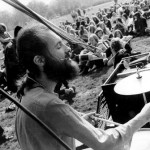
Thomas Mera Gartz blazed a trail through psych/Kraut music for over four decades, displaying a streak of minimalism and brutality, tempered with a natural delicacy; and soldiered through times prosperous and lean as a working musician, while former collaborators shuffled off into the world of 9 to 5’s. He first came to public attention as (primarily) drummer for the Mecki Mark Men, before serving as founder member of the “continuous seminar of music” called Parson Sound, a group formed to perform Terry Riley’s “In C” (Riley had been flown to Sweden to compose an orchestral work for a Stockholm school and work with students). After that initial burst of free-form manna Parson exploded in slippery tentacles down many winding paths, detailed out by humble scribe Erik Bluhm below. Selections by Senor Bluhm and myself give an iceberg-tippin’ look into the world of Gertz with a YouTube playlist which follows this tribute. Of Gartz former bandmate Reine Fiske said: “Thomas’s unique commitment to everything that surrounded him created a strong spiritual force, a vibe that very easily rubbed off on you and something that can be heard…” Make that time to hear the spirit of this man N-O-W. (jeremy nobody, esq.)
This year saw the passing of Swedish musician Thomas Mera Gartz, best known as a founding member of both the Mecki Mark Men and the Pärson Sound/Harvester/Träd, Gräs och Stenar family. Throughout his forty-five-year career, Gartz also contributed his considerable skills to other notable Swedish combos like Arbete och Fritid and the Hot Boys.
It all began in 1967 when Gartz, then one of two drummers for the Mecki Mark Men, became more and more interested in experimentation and musical freedom. Already contributing sitar and flute to the Mecki Mark Men’s sound, Gartz was primed to go further out. On the side he formed the group Pärson Sound with guitarist Bo Anders Persson and bassist Torbjörn Abelli. Envisioned as an informal collective influenced by Minimalism, free jazz, American rock’n’roll, traditional Swedish folk, and various ethno-sounds, the group was not dissimilar in sound and concept to Japan’s Taj Mahal Travelers or Germany’s Amön Düül and Siloah. Though Pärson Sound never released an album (their collected recordings were released posthumously in 2001), the group was a great countercultural influence and forged much new ground in the Swedish rock scene.
